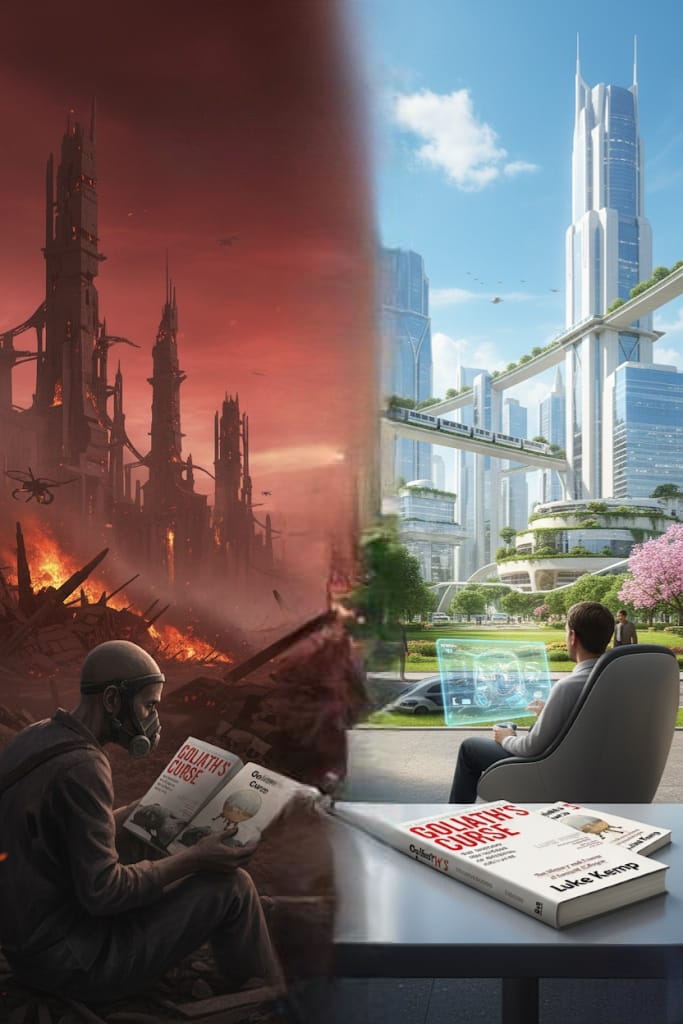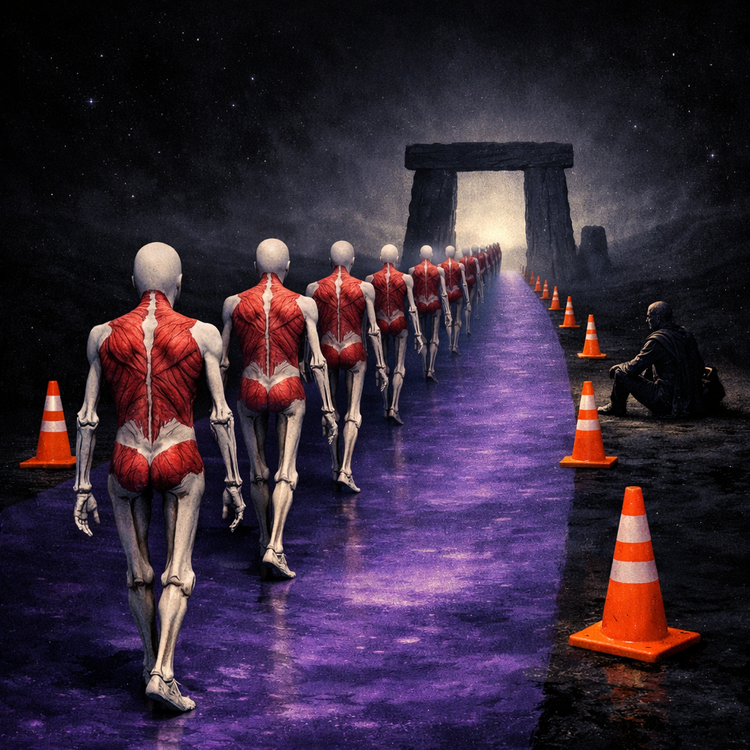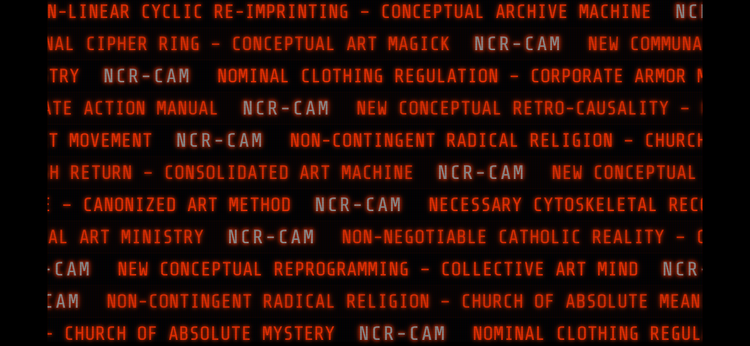We must all work to slay our giant goliath's

On Luke Kemp’s book Goliath’s Curse, collapse, and why we still pretend civilisation is progress
Dr. Luke Kemp, of Cambridge’s Centre for the Study of Existential Risk, has done something very few scholars dare: mapped the rise and fall of over 400 societies across 5,000 years and asked whether our present one can last. His conclusion, written after seven years of research and published in his book Goliath’s Curse, is stark: collapse is not an outlier, it’s the rule. And if history holds, “self-termination is most likely.”
What Kemp does first is dismantle the word civilisation itself. It was always a marketing term. Pharaohs, priests, emperors — the winners — called their arrangements “civilised.” But what they actually built were Goliaths: systems of domination that relied on grain hoards, weapons monopolies, and people trapped by geography. Grain mattered because it could be taxed and stolen; bronze mattered because it beat stone; rivers and deserts mattered because they hemmed in subjects who couldn’t simply walk away.
These weren’t golden ages. They were protection rackets. Cahokia, in North America, used maize and beans to support a priestly elite who demanded human sacrifice. In Mesopotamia, the first cities grew alongside bronze swords. Egypt’s pharaohs flourished because the Nile and Red Sea kept their subjects in a cage. As Kemp notes, history is best read as organised crime: a clique cornering surplus, backed by violence, and calling it destiny.
And yet Goliaths always carry their own curse: inequality. Elites skim surplus, chase status, hoard weapons, and hollow their societies until they are brittle shells. Collapse comes when shocks — war, plague, climate — crack them open. Paradoxically, the end of empire often meant relief for the ordinary person. Archaeological records show that after Rome fell, common people were taller and healthier. Freed from taxes and forced labour, they farmed and lived with more autonomy.
The problem now is that we no longer live in many Goliaths. We live in one: a global, interconnected capitalist system. This “world-Goliath” is more fragile than any empire before it. Collapse here wouldn’t free farmers; it would crash supply chains, power grids, medicine, food, and water. Our fallback is gone.
Kemp argues that it isn’t “human nature” that drives collapse, but small elites steeped in what psychologists call the dark triad: narcissism, psychopathy, Machiavellianism. He names Trump, Putin, and Xi as textbook cases, but he also points to corporations and algorithms that act in the same spirit. Our greatest risks — nuclear weapons, climate breakdown, AI weapons, engineered pandemics — are not the collective product of humanity, but of powerful groups racing each other for profit and dominance.
So what’s the way out? Kemp is blunt. First, more democracy, not less: citizens’ assemblies, juries, and digital tools to make real participation possible at scale. Second, wealth caps: he suggests $10 million as enough for anyone, beyond which fortunes only serve to “keep score” while destabilising society. Third, culture: stop working for arms makers, fossil fuel giants, or tech monopolies. Stop replicating domination in daily life. His advice boils down to: don’t be a dick.
He knows this is a tall order. Five millennia of Goliaths have conditioned us to imagine apocalypse more easily than change. We’ve been told stories — from god-kings to tech titans — that their rule is natural and permanent. And yet history says otherwise. Goliaths do fall. The curse of inequality always catches them.
Kemp admits he is pessimistic. The structures of global power are entrenched and the threats — nuclear stockpiles, climate change at 3°C, AI weapons — are far more lethal than in the past. But he insists that the fight against collapse is not about optimism. It is about defiance. Even if we lose, we should not be the ones who helped the machine eat itself.
Collapse, then, is not destiny — it is a choice, replayed again and again in history. The question is whether this time, at the scale of the planet, we can finally choose differently.






Member discussion